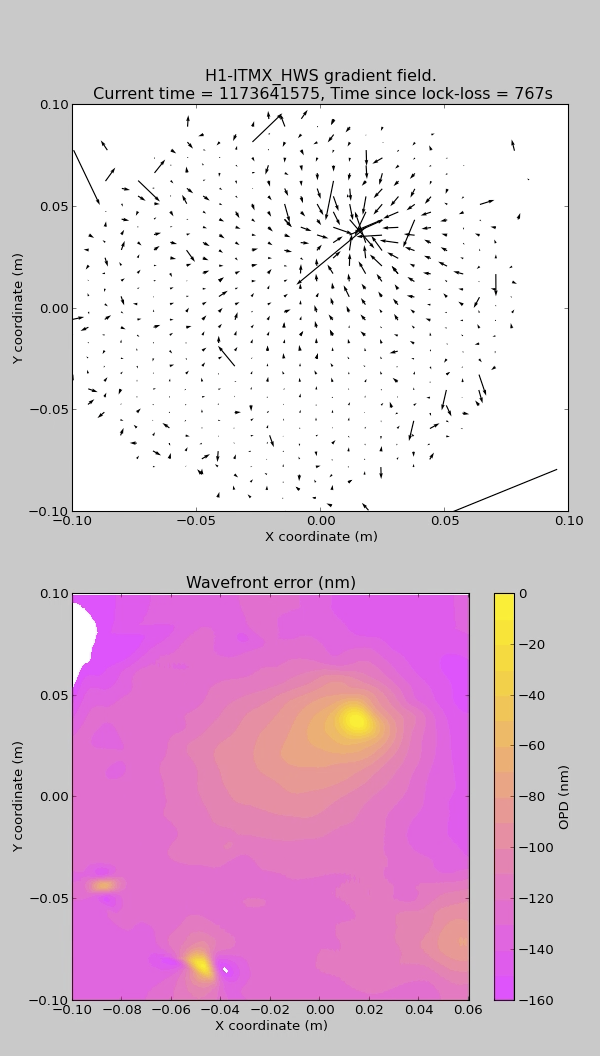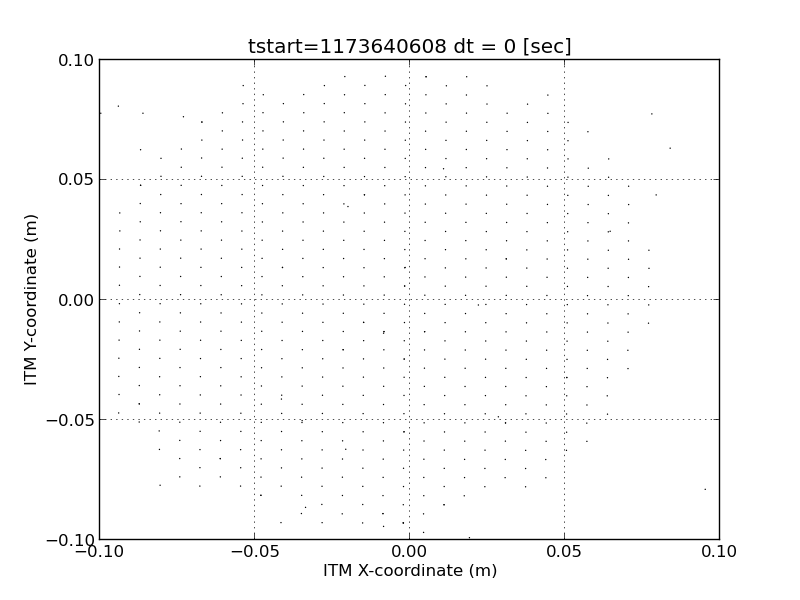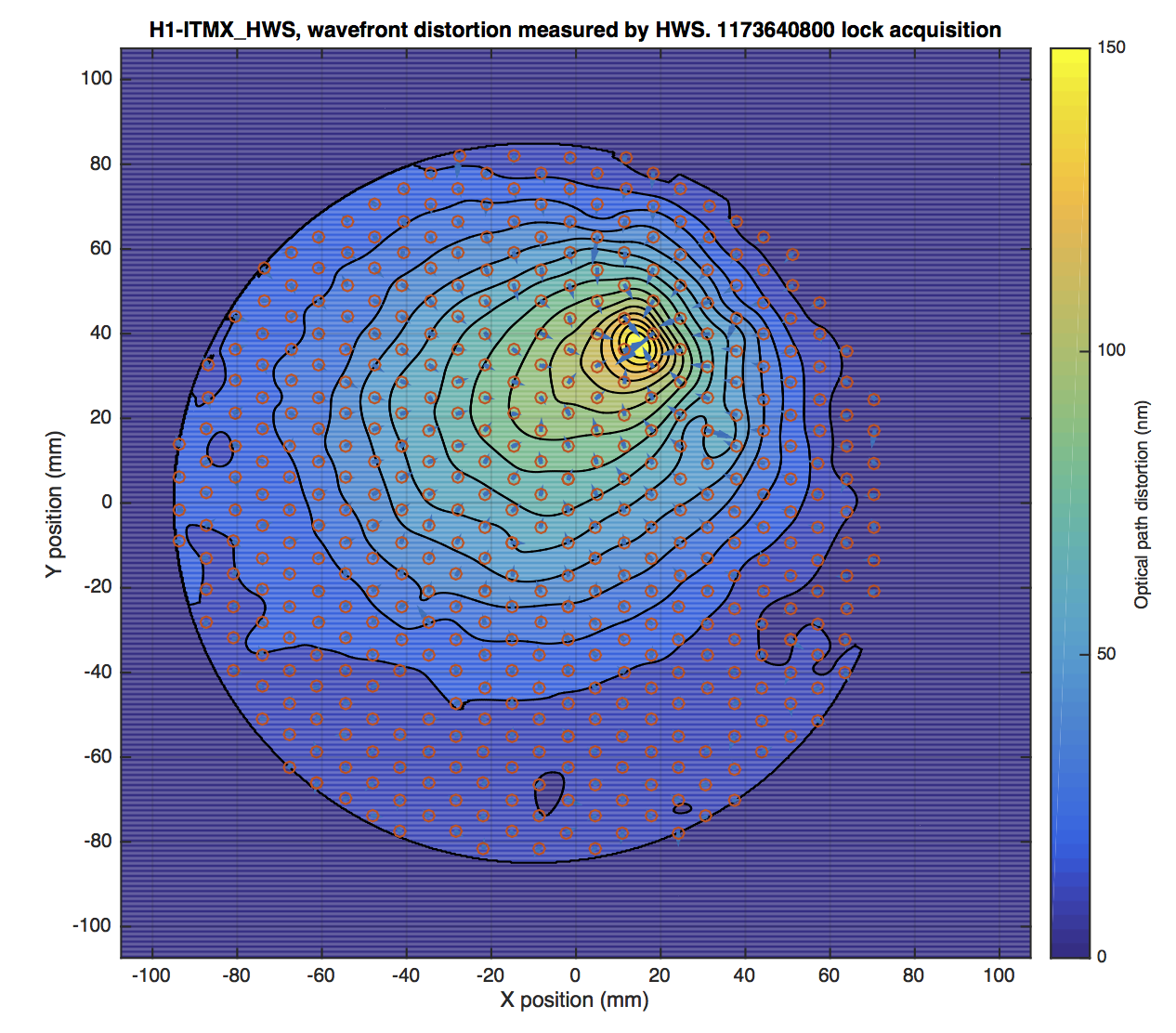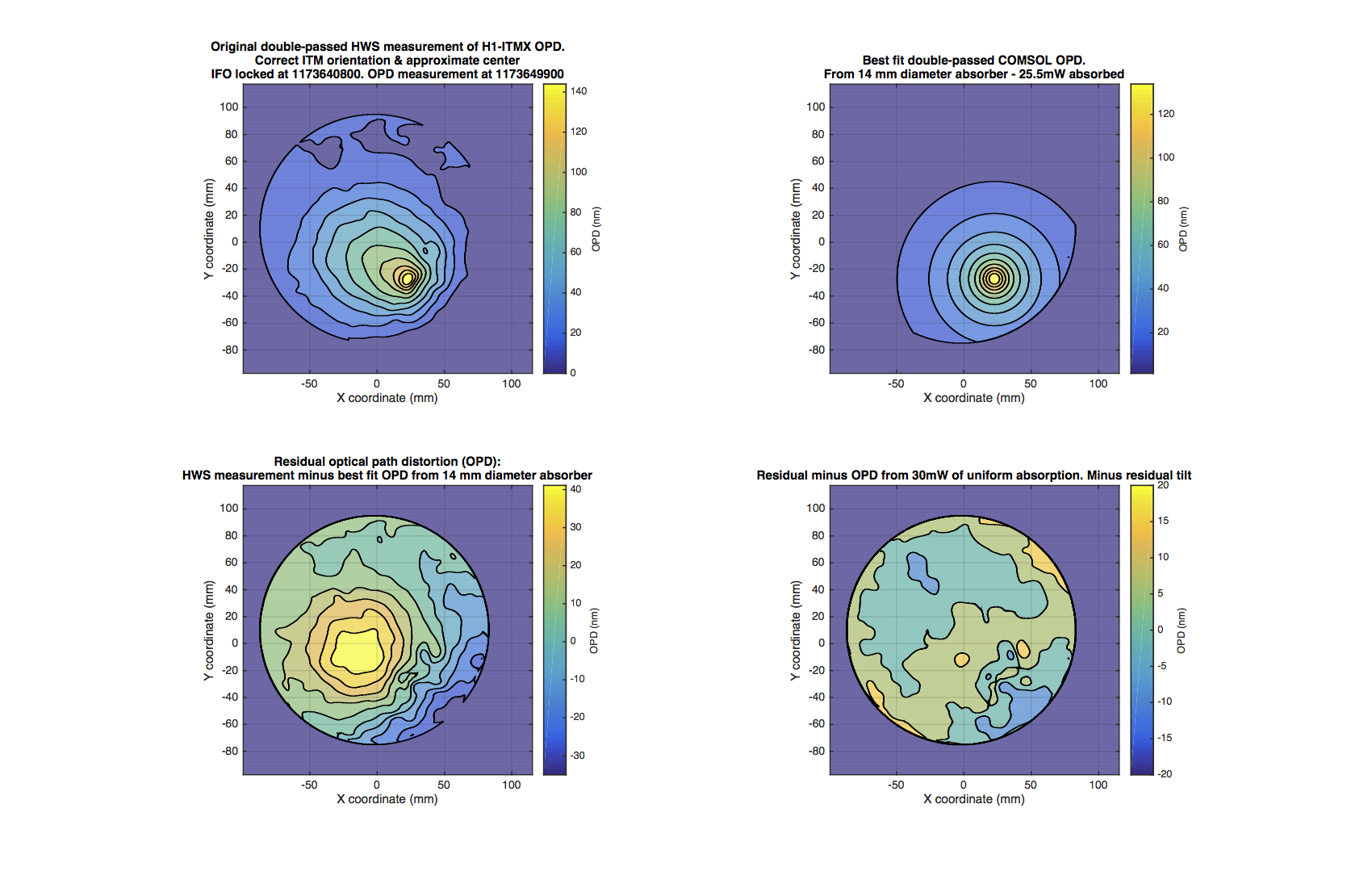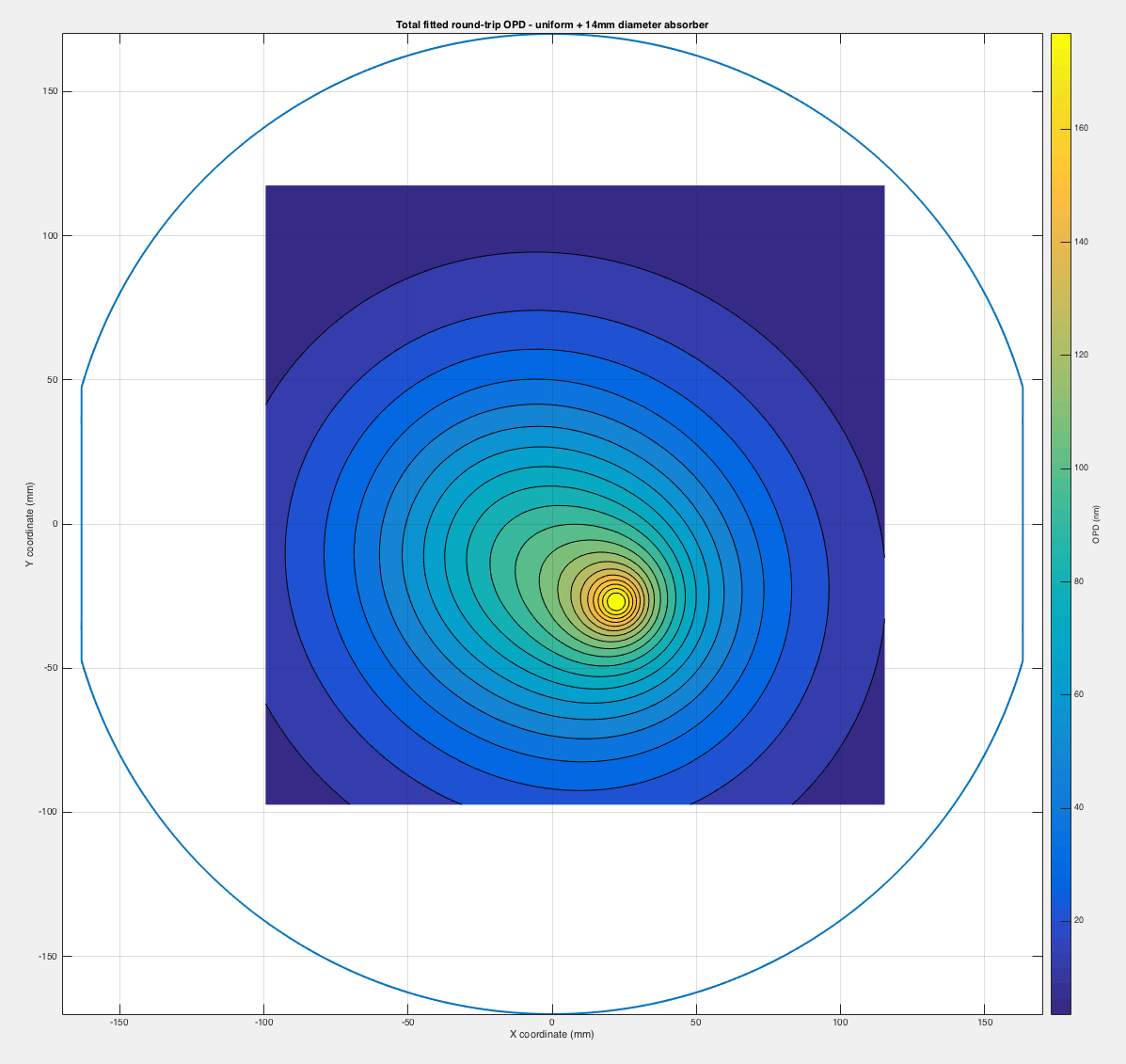This is a follow up of the jitter coupling measurements (34502, 34389).
I estimated the size of the beam spot shift on the PRC mirrors (PRM, PR2, PR3 and ITMX) which we had moved during this measurement.
Here is the result for ITMX which is of our main interest (34853).
- Vertical beam shift on ITMX = 1.7 mm upward.
- Horizontal beam shift on ITMX = 15 mm toward the SRM.
Note: if we assume a 10% calibration accuracy on the suspensions' bias sliders, the size of uncertainty is 3-5 mm.
[The script moves not only the PR3 spot but also all the spots in PRC]
As it turned out, the script that we used was actually moving not only the PR3 spot but also all other PRC mirrors despite the name of the script, pr3spotmove. Historically this script was developed in order to move the degree of freedom that is sensed by POP A QPD (28764). Indeed this script touches IM4, for example, which no doubt moves the spot on PR2.
[The move]
The way this script works is such that as we manually move PRM in angle, the script subsequently moves other optics in a deterministic manner in such way that it results in a change in POP A QPD without disturbing any of the angular control loops. Therefore, for estimating the spot positions, the quantity we need to know is the size of alignment shifts that we introduced on PRM only. This will automatically give us the alignment shifts for the other optics.
Looking at the measurement from the 1st of this month (34502), I found that we have moved PRM by -51 urad in pitch and by -36 urad in yaw. The below is a summary table of the move.
|
|
size of the move |
| PRM PIT |
-51 urad |
| YAW |
-36 urad |
| PR2 PIT |
0 |
| YAW |
0 |
| PR3 PIT |
0.27 urad |
| YAW |
-0.09 urad |
| ITMX PIT |
-1.74 urad |
| YAW |
-1.04 urad |
As shown above, the script didn't touch PR2 at all. In addition to the optics listed above, the script also moved IM4, ITMY, ETMX, ETMY, SR2 and SRM at the same time. While some of them can give the same information about the ITMX spot position shift in a redundant way, I have just used the optics shown in the table to simplify the estimation of the spot positions.
[Estimation of the spot positions]
I have made an ABCDEF matrix model (e.g. LLO 9278) for the power recycling cavity with the BS and ITMY omitted. I have used the parameters that Stefan posted at 28747. By plugging the alignment vectors shown in the table, I get the following results.
[v_p, v_2, v_3, v_i] = [-0.27 mm, 016 mm, 1.7 mm, 1.7 mm]
[h_p, h_2, h_3, h_i] = [-0.43 mm, 1.7 mm, -15 mm, -15 mm]
where v and h are vertical and horizontal positions as illustrated in the cartoon below.
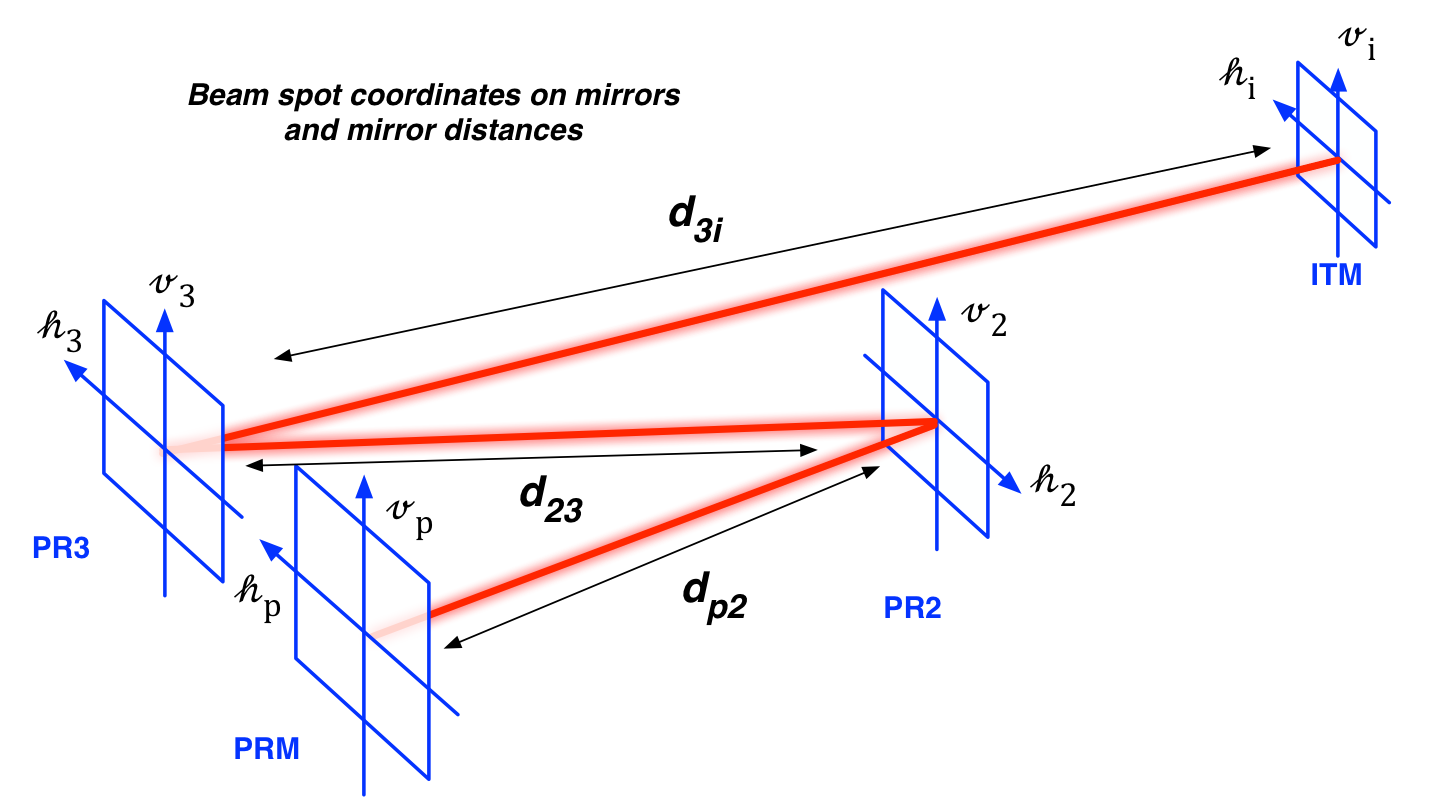
Also, since I wasn't sure if the calibration of suspensions' bias sliders are accurate, I assumed a 10% error in each optic and propagated them through the same ABCDEF model to estimate the uncertainties. The uncertainties are estimated to be
[delta v_p, delta v_2, delta v_3, delta v_i ] = [0.22 mm, 0.62 mm, 5.4 mm, 5.3 mm ]
[delta h_p, delta h_2, delta h_3, delta h_i] = [0.14 mm, 0.41 mm, 3.6 mm, 3.5 mm]
